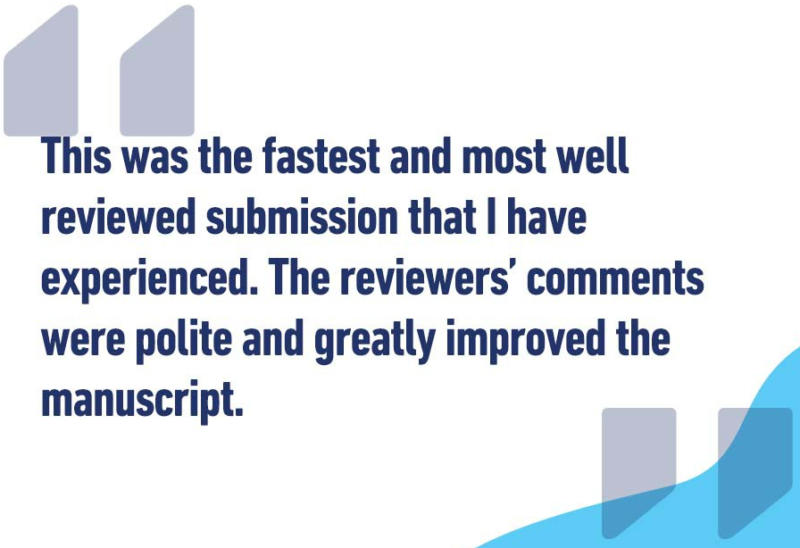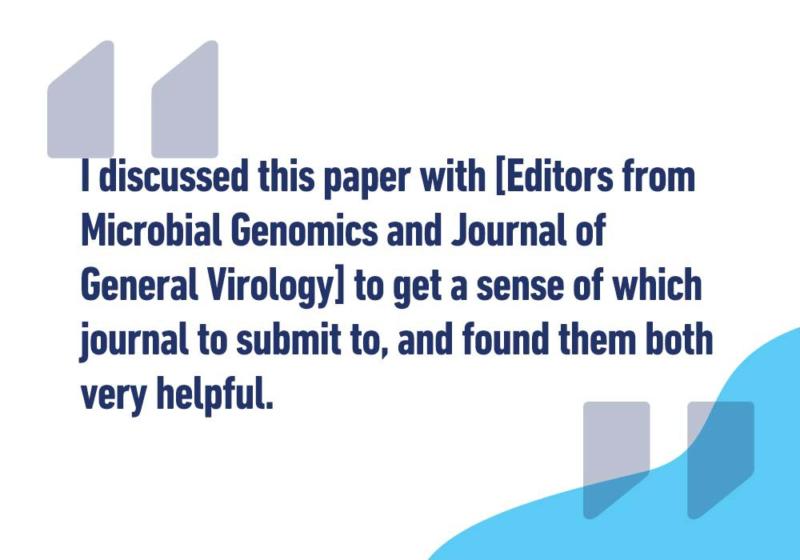Acting on your feedback
Posted on October 29, 2018 by Tasha Mellins-Cohen
In July 2018, the Society’s publishing team launched a new set of author and reviewer surveys, aiming to gather information about what we do well and what we can do better. With three months of data under our belts we’re pleased to be able to tell you that 92% of authors and 89% of reviewers think we’re doing a very good or excellent job.
One author commented:

A sentiment echoed by many other respondents.
Other authors lauded our excellent Editorial Boards, with one stating:

Reviewers were also complimentary, including very positive comments about the prompt and personal communication from our Editorial Boards and staff.
There were of course things that both authors and reviewers felt we could improve, and we have taken those on board. For authors, the main concern was, unsurprisingly, the administration and time associated with the submission process. To make the process as simple as possible, we have:
- Removed all formatting requirements at submission.
- We want authors to be concerned about the quality of their science, not their referencing styles, so will only be asking authors to ensure their files load successfully and are complete at submission. For those authors who want them, we have created article templates.
- Re-written our information for authors pages to make them clearer and more welcoming.
- Including eliminating the unnecessary variations between our journals in areas such as recommended article lengths.
- Created a new submission flow in which authors upload their files first.
- The system extracts the article metadata (title, author list, and so on) and uses that to populate the form, which the author simply checks and approves before submission.
One question which came up in both author and reviewer surveys was why researchers need different accounts for different journals, even though they are all serviced by the Editorial Manager peer review software. The separation of account data on different sites is one of the security features of Editorial Manager, which unfortunately means that while we have shared accounts across our journals, we cannot offer shared accounts across different publishers. Luckily there is an excellent alternative in the form of ORCiD.

As well as allowing researchers to uniquely identify themselves with a persistent identifier, ORCiD can be used as a log-in mechanism and we have now switched that on for Microbiology, Journal of General Virology, Journal of Medical Microbiology, International Journal of Systematic and Evolutionary Microbiology, and the Open Access journals Microbial Genomics and Access Microbiology. Researchers who already have accounts with our journals can simply link their account to their ORCiD when they next log-in if they wish to do so.
Implementing ORCiD also allows us to address the primary concern raised by reviewers, by allowing us to formally recognise their work in a way that is accepted by many institutional hiring committees: from the end of 2018 we will send a quarterly data deposit to ORCiD to update opted-in researchers’ records with their reviewer data. To preserve confidentiality in the review process, only the name of the journal and the year in which the review was completed will be shared. Other reviewer recognition options are also under review, including new initiatives such as discount codes for Open Access articles and extra benefits for those reviewers who have made a particularly significant contribution.
While we have already done a lot, there is more to come. One key aim is to take our support for researchers into the real world and to that end we’re delighted to announce that our Editors, in collaboration with the in-house publishing and professional development teams, will be delivering two professional development sessions at Annual Conference 2019. The first will be on how to conduct a peer review, while the other will introduce attendees to publishing ethics. We look forward to welcoming many of you then.

